Flush me, Flush-Me-Not: this global company is helping India save 90pc of water in toilets through its waterless urinal system
Did you know 118 crore litres of water go down the drain, literally, in India every day? Diversey, a global cleaning and hygiene company, wants to reduce water usage in toilets across India through Flush-Me-Not, an innovative solution serving as a comprehensive waterless urinal system.
At present, India is facing the worst-ever water crisis with over 600 million people - nearly half the country’s population - suffering from extreme water stress according to a report by NITI Aayog. It also claims that 75 percent of Indian households do not have clean drinking water and 84 percent of rural households do not have access to safe piped water.
India ranks 120 out of 122 countries on the water quality index since 70 percent of its water is contaminated, which is causing the death of two lakh people each year.
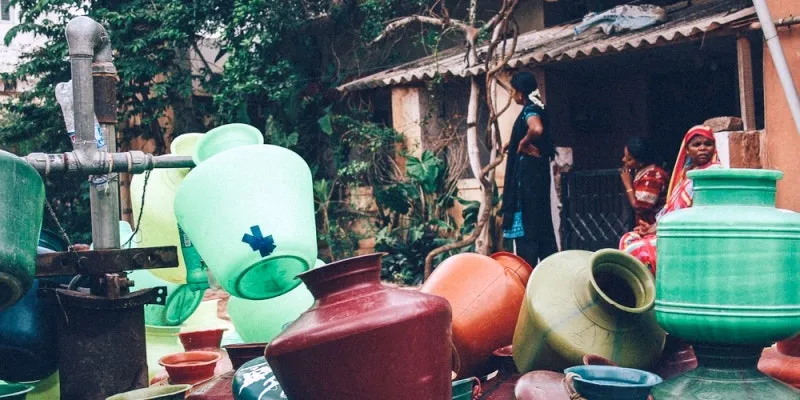
India is facing its worst-ever water crisis. (Image: Shutterstock)
Although depletion of water resources is a major issue, flushing toilets is not typically recognised as a cause. But, each flush uses at least 1.6 litres of water according to Conserve H2O, a Water Providers Consortium. The Ministry of Drinking Water and Sanitation recently stated that 89 percent (107 crore) of the Indian population has access to toilets. Considering that an average individual uses the toilet seven times a day, we’re flushing out a whopping 118 crore litres of water on a daily basis.
Diversey, a global cleaning and hygiene company, is attempting to save this water through an innovative solution Flush-Me-Not, which serves as a comprehensive waterless urinal system. Not only does it reduce the usage of water in toilets, but it also helps control odour. Launched in 2014, Flush-Me-Not is already being used across 15,000 urinals in India including the ones at Chhatrapati Shivaji Maharaj International Airport in Mumbai, public restrooms around the Vaishno Devi temple in Kashmir, across multiple outlets of fast food chain McDonald's, and also in some branches of Delhi Public School.
Also read: Every drop of water counts - and this 84-year-old is making sure it's not wasted
Promoting judicious use of water
Today, water is one of the most stressed resources in India with mismanagement, over usage, and pollution. Flush-Me-Not system wants to promote the judicious use of water.
“Places like hotels, airports, and public toilets have many visitors every day and therefore the usage of water is also very high. A single flush drains one and a half liters of water. Our solution helps save 90 percent of this water,” Himanshu Jain, President (APAC Region) Diversey tells YourStory.
The Delhi Public School in Pune has been using this solution for over three years. Besides saving water, they have spread the word among students.
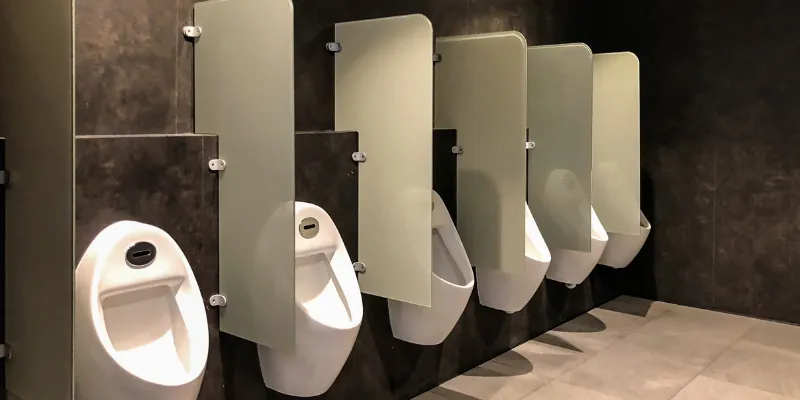
Urinals installed with Diversey's Flush-Me-Not system are said to also control odour.
“We are implementing Diversey’s solution across all the 54 urinals within the campus. Over 1,500 boys are pursuing their academics here. Even if we assume they use the restroom once a day, we would land up saving about 2,000 litres a day, which is a lot. To spread awareness about conserving water through Flush-Me-Not, the administration even conducted various sensitisation programmes for students,” says Sumati Arora, Facility Manager, Delhi Public School.
Flush-Me-Not is also being implemented in the Chhatrapati Shivaji Maharaj International Airport in Mumbai. According to a report by the Association of Private Airport Operators, the passenger traffic in this airport is 4,850 crore. Hence, the amount of water saved is equally mind boggling. “We introduced Flush-Me-Not to the management team and began saving all the water, which would have otherwise gone down the drain. Our janitors and house keeping staff were trained to use the package and maintain the cleanliness of urinals,” a spokesperson from Chhatrapati Shivaji Maharaj International Airport, Mumbai who did not wish to be named tells YourStory.
How does Flush-Me-Not function?
The Flush-Me-Not package consists of 12 urinal screens made out of recycled polymer as well as four litres of concentrated odor eliminator.
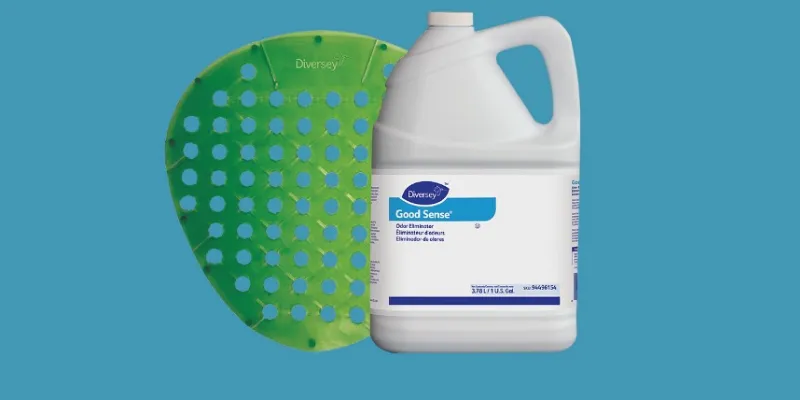
The Flush-Me-Not package consists of 12 urinal screens and four litres of odour eliminator.
“Before installation, the urinal needs to be cleaned with diluted descaling solution and a toilet sanitiser. This can be rinsed with water after a few minutes. The water supply to the urinal must be disconnected before placing the screen on the urinal drain. Finally, the odor eliminator should be sprayed on the surface. This can last for 30 days after which the screen and odor eliminator have to be replaced,” explains Aurodeepa Rath, Marketing and Assistant Manager, Diversey India.
While all the bacteria, sodium, urea, and other components gets deposited in the urinal screen, the odor eliminator uses non-pathogenic bacteria and enzymes to remove foul smell, urinal stains, prevent clogging, and releases a pleasant fragrance.
Each Flush-Me-Not package costs Rs 6,000 and if used as per the standard procedure, can last for a month after using it in 12 urinals.
Also read: How this Bengaluru apartment is saving nearly 500 litres of water every day
Other initiatives by Diversey
Diversey also works in employee volunteerism, disaster relief, and product donations as part of its Corporate Social Responsibility (CSR) initiatives.
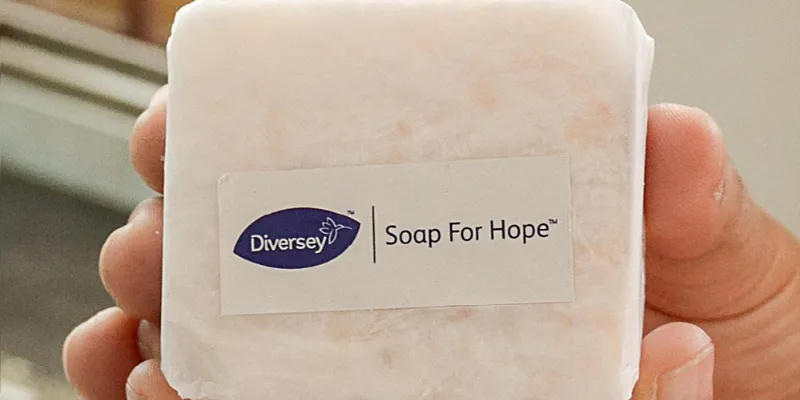
Soap for Hope: Leftover soaps from hotels converted into new soap bars by Diversey.
Its initiative ‘Soap for Hope’ turns leftover soaps used in hotels into new soap bars to be distributed to those in need. “Every year, a typical 400-room hotel generates 3.5 tons of soap waste. This waste either gets dumped in a landfill or is shipped to a global recycling facility that charges a hefty amount. We went ahead with the Soap for Hope drive to promote hygiene, reduce waste, and provide livelihood to marginalised communities through processing and recycling soap,” says Aurodeepa.
Since 2016, over 2.5 lakh soaps have been distributed across several slums in the cities of Mumbai, Delhi, Chennai, and Patna.
‘Linens for Life’, also launched in 2016, empowers local communities to earn a living by converting linens discarded by hotels into useful items that they can later sell. To achieve this, the organisation trains people to sew and stitch linen to make products like pillow cases and tote bags. Some of the products are also given away to refugee camps and to families affected by natural disasters.
About 142 hotels across India, including the Taj, and Marriot groups, are working with Diversey as part of these two initiatives.
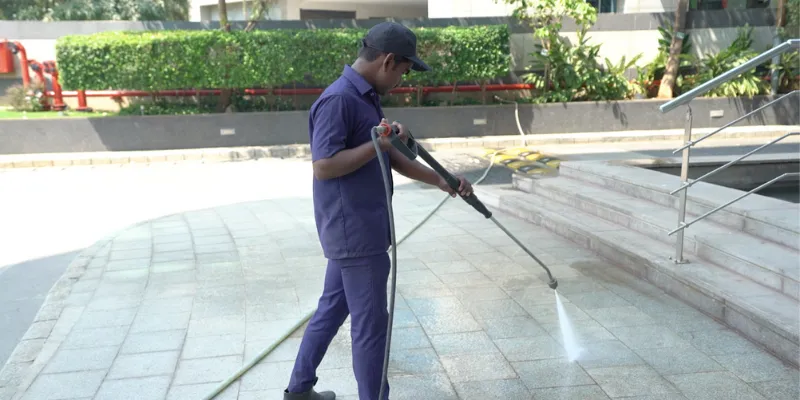
Diversey's skill development programme, Garima, helps unemployed rural youth to get jobs in the housekeeping industry.
The company also launched Garima, a skill development programme to enable people to promote sanitation and cleanliness.
“We train unemployed rural youth and women in scientific methods of cleaning, safe use of vacuum cleaners and other equipment, as well as application of chemicals. After completing the course, they are provided with employment opportunities in the housekeeping and hospitality industry,” Himanshu explains.
The organisation has helped 9,000 people in a span of two years as part of this programme.
The founding story
Founded in 1923 by August Kochs and his son, Herbert Kochs, in Chicago, USA, Diversey is a subsidiary of Victor Chemical Works. In 1950, it began operations as a separate entity after a public offering of its shares. Later, brewing company Molson acquired it after which Herbert Kochs retired as the Chairman.
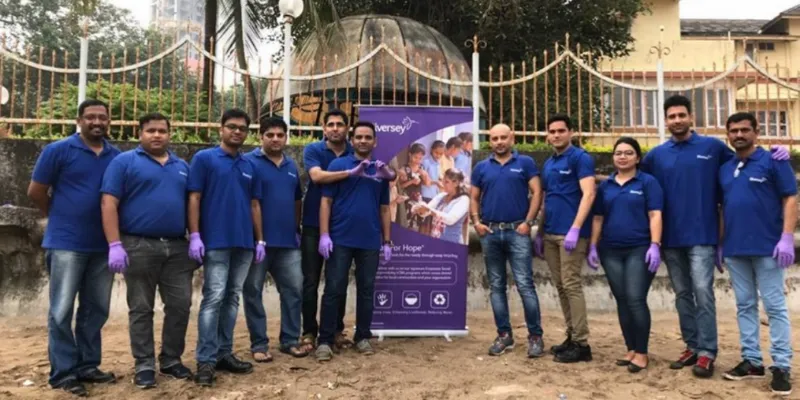
The team of Diversey, India.
Over the years, Diversey’s goal of creating clean, safe, and healthy spaces did not change. The company continued to deliver effective cleaning and hygiene solutions across the globe.






